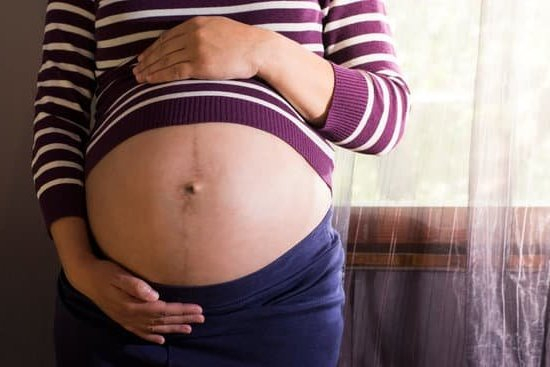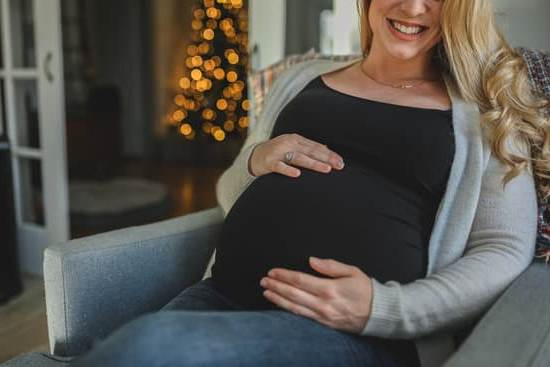Experiencing a miscarriage can be a devastating and emotional journey for many women. It is not uncommon to wonder about the possibility of becoming pregnant again after such a loss. One common question that may arise during this time is, “When to take a pregnancy test after miscarriage?” This article aims to provide insight into this topic and offer guidance for those who may be navigating this difficult period.
Miscarriages can occur due to various reasons, such as chromosomal abnormalities, hormonal imbalances, or underlying health conditions. Recognizing the symptoms of a miscarriage, including vaginal bleeding, cramping, and passing of tissue, is crucial in understanding what might have happened. While the physical recovery from a miscarriage is important, so too is the emotional healing process that follows such a loss.
Confirming a miscarriage through medical examinations is essential for ensuring proper treatment and care. Understanding when to expect your menstrual cycle to return post-miscarriage can also help in monitoring your reproductive health. Knowing how soon you can get pregnant again after a miscarriage can bring both hope and uncertainty to those wanting to conceive. The timing of when to take a pregnancy test after miscarriage plays a significant role in accurately determining if conception has occurred once more.
Emotional and Physical Recovery After Miscarriage
Experiencing a miscarriage can be an emotionally and physically challenging time for many women. The emotional recovery process may vary from person to person, but it is essential to allow yourself time to grieve and process the loss. Talking to a therapist or joining a support group can also be beneficial in coping with the feelings of sadness, guilt, and even anger that often come with a miscarriage.
On the physical side, it is crucial to take care of yourself during the recovery period after a miscarriage. Your body needs time to heal, so make sure to follow your healthcare provider’s recommendations for rest, nutrition, and any prescribed medications. Additionally, it is essential to monitor any physical symptoms you may experience after a miscarriage and report them promptly to your doctor if needed.
As you navigate the emotional and physical aspects of recovering from a miscarriage, remember that it is okay to seek help and support from your loved ones or healthcare provider. Taking care of yourself holistically – emotionally, mentally, and physically – is key in the healing process. Remember that everyone’s journey through recovery is unique, so be patient with yourself as you move forward in your healing journey.
Importance of Confirming the Miscarriage
Miscarriage can be a difficult and emotionally taxing experience for any woman. The loss of a pregnancy can lead to feelings of grief, sadness, and even guilt. It is crucial for individuals who suspect they might be experiencing a miscarriage to seek medical confirmation. Confirming a miscarriage is essential not only for emotional closure but also for physical health reasons.
Why Confirming the Miscarriage Is Important
One of the main reasons why confirming a miscarriage is important is to ensure that there are no risks to the woman’s health. In some cases, not all pregnancy tissue might be expelled during a miscarriage, which could lead to complications such as infection or excessive bleeding. By confirming the miscarriage through medical examinations or ultrasounds, healthcare providers can determine if any additional steps need to be taken to protect the woman’s health.
When Should You Seek Confirmation?
If you suspect you may be experiencing a miscarriage, it is recommended that you contact your healthcare provider immediately. They will be able to guide you on the next steps to take, including scheduling an ultrasound or blood tests to confirm the miscarriage.
Seeking confirmation early on can help prevent any potential risks or complications associated with an incomplete miscarriage. Remember that confirming the miscarriage does not diminish the validity of your loss; it simply ensures that you receive the necessary care and support during this challenging time.
When to Expect Your Menstrual Cycle to Return
After experiencing a miscarriage, many women wonder when they can expect their menstrual cycle to return to normal. The timing of when your period comes back can vary depending on individual factors.
It is common for menstruation to resume within four to six weeks after a miscarriage, but this timeline can be different for each woman. Factors such as the stage of pregnancy at the time of the loss and how quickly your body recovers from the miscarriage can influence when your menstrual cycle returns.
To help you understand what to expect, here are some factors that may affect the return of your menstrual cycle:
- The stage of pregnancy: If you experienced a miscarriage in the early stages of pregnancy, it is likely that your menstrual cycle will return sooner compared to a later pregnancy loss.
- Hormonal levels: After a miscarriage, it may take some time for your hormone levels to normalize and for your body to regulate its menstrual cycle again.
- Emotional well-being: Your mental and emotional state following a miscarriage can also impact the return of your period. Stress and anxiety can affect hormonal balance and delay the restart of your menstrual cycle.
It is essential to keep in mind that every woman’s body is unique, so there is no one-size-fits-all answer to when you can expect your menstrual cycle to return after a miscarriage. However, if you have not resumed menstruating within six weeks or if you experience unusual symptoms, it is advisable to consult with your healthcare provider for further evaluation.
- Remember that everyone heals differently
- Be patient and give yourself time
- Take care of yourself both physically and emotionally during this recovery period
How Soon Can You Get Pregnant After a Miscarriage?
After experiencing a miscarriage, many women may be left wondering about their chances of getting pregnant again. The question of how soon one can conceive after a miscarriage is common and one that often comes with various emotions and uncertainties. The truth is that there isn’t a definitive answer as to when you will ovulate or become fertile again after a pregnancy loss, as it varies from woman to woman.
Fertility After Miscarriage
In general, most healthcare providers recommend waiting at least one to three menstrual cycles before trying to conceive again after a miscarriage. This time frame allows your body to heal physically and emotionally from the loss. However, some couples may feel ready sooner to start trying once they have emotionally recovered from the miscarriage. It’s essential to listen to your body and mind during this delicate time.
Ovulation Cycle After Miscarriage
The menstrual cycle can take some time to regulate again after a miscarriage, which can affect when you ovulate next. Some women may find that their cycles return to normal relatively quickly, while others may experience irregularities for several months.
Tracking your ovulation through methods such as monitoring basal body temperature or using ovulation predictor kits can help determine when you are most fertile post-miscarriage. Remember that everyone’s body is different, so what works for one person might not work for another in terms of predicting fertility windows.
Factors to Consider Before Taking a Pregnancy Test
After experiencing a miscarriage, it is natural for women to wonder when to take a pregnancy test after a miscarriage. While the emotional and physical recovery process can vary from person to person, there are certain factors to consider before deciding to take a pregnancy test.
One important factor is the levels of human chorionic gonadotropin (hCG) in your body. This hormone is produced during pregnancy and can still be present in your system for up to a few weeks after a miscarriage.
Another factor to consider is the type of pregnancy test you plan to use. There are different types of tests available, such as urine tests and blood tests. Urine tests, which are commonly used at home, may not be as sensitive as blood tests in detecting lower levels of hCG. Therefore, if you want more accurate results early on, you may consider opting for a blood test administered by a healthcare provider.
It is also important to give your body enough time to recover physically after a miscarriage before taking a pregnancy test. The timeline for this varies among individuals, but doctors often recommend waiting at least one to two menstrual cycles before trying to conceive again or taking a pregnancy test. This allows your body to return to its normal hormonal levels and ensures that any remaining hCG from the previous pregnancy has had time to clear out of your system.
| Factors Considered | Recommendation |
|---|---|
| Levels of hCG | Wait for hCG levels to decrease |
| Type of Test | Consider using a blood test for more accuracy |
| Time for Recovery | Wait at least one to two menstrual cycles before taking a test |
How Pregnancy Tests Work and Types Available
After experiencing a miscarriage, many women may wonder about when to take a pregnancy test after miscarriage. It is important to understand how pregnancy tests work and the types available in order to make an informed decision. Pregnancy tests work by detecting the hormone human chorionic gonadotropin (hCG) in urine or blood, which is produced by the placenta after a fertilized egg attaches to the uterine lining.
There are two main types of pregnancy tests: urine tests and blood tests. Urine tests are convenient, affordable, and can be done at home, while blood tests are more sensitive and can detect lower levels of hCG earlier in pregnancy. If you have recently experienced a miscarriage and suspect that you may be pregnant again, it is important to choose the right type of test for your situation.
When deciding when to take a pregnancy test after miscarriage, it is recommended to wait for at least one menstrual cycle to allow your body to recover physically and emotionally. However, some women may ovulate and conceive soon after a miscarriage, so it is possible to get pregnant before your first period. In such cases, taking a pregnancy test around 2 weeks after ovulation or suspected conception can provide accurate results.
| Pregnancy Test Type | Features |
|---|---|
| Urine Test | Convenient, affordable, can be done at home |
| Blood Test | More sensitive, detects lower levels of hCG earlier |
When to Take a Pregnancy Test After Miscarriage
After experiencing a miscarriage, many women may wonder when it is the appropriate time to take a pregnancy test. It is important to note that the timing of when to take a pregnancy test after a miscarriage can vary depending on individual circumstances.
In general, healthcare providers recommend waiting for at least two weeks after a miscarriage before taking a pregnancy test. This waiting period allows time for the body’s hormone levels to return to normal, ensuring more accurate results.
However, for some women, hormone levels can linger in the body for several weeks after a miscarriage, causing false positive results on a pregnancy test. To avoid confusion and unnecessary anxiety, it is advisable to consult with a healthcare provider before taking a pregnancy test following a miscarriage. They can provide guidance on the best time to take the test based on your unique situation and recommend any additional tests if needed.
In cases where fertility treatments were involved in the conception leading up to the miscarriage or if there were underlying medical conditions contributing to the loss, healthcare providers may suggest waiting longer before taking a pregnancy test. Patience and careful consideration are key when deciding when to take a pregnancy test after experiencing a miscarriage. Remember that seeking support from loved ones and healthcare professionals can help alleviate some of the stress and uncertainty during this emotional time.
Should You Consult a Doctor Before Taking a Test?
Before deciding to take a pregnancy test after experiencing a miscarriage, it is crucial to consider consulting with a healthcare provider. A doctor can provide valuable insight into your specific situation and help determine the appropriate timing for taking the test. They may also offer guidance on any potential complications that could affect the accuracy of the results.
Additionally, seeking professional advice before taking a pregnancy test can help ease any emotional or psychological concerns you may have. Dealing with the aftermath of a miscarriage can be challenging, and having the support and expertise of a medical professional can make the process less daunting. Your doctor can also provide information on further steps to take depending on the results of the test.
In some cases, your doctor may recommend waiting for a certain period of time before taking a pregnancy test after a miscarriage. This is typically done to ensure that hCG levels have had enough time to decrease to undetectable levels, which can affect the accuracy of the results. By consulting with your healthcare provider beforehand, you can better understand when it is most appropriate to take a pregnancy test after experiencing a miscarriage.
Coping With Uncertainty and Anxiety While Waiting for Results
Experiencing a miscarriage can be emotionally and physically challenging for any woman. It is essential to understand the causes and symptoms of miscarriage to navigate through the recovery process effectively. While the emotional healing may take time, it is crucial to also focus on your physical well-being.
Confirming a miscarriage is important for your health. Understanding when to expect your menstrual cycle to return can give you a sense of normalcy during this uncertain time. It can also help you track your fertility if you are considering trying to conceive again in the future.
After a miscarriage, many women wonder how soon they can get pregnant again. Factors such as physical healing, emotional readiness, and medical advice should all be taken into consideration before attempting to conceive once more. When considering when to take a pregnancy test after miscarriage, timing and accuracy play vital roles in obtaining reliable results.
Consulting with a healthcare provider before taking a test can provide guidance on the best course of action for your individual circumstances. Remember to cope with uncertainty and anxiety while waiting for results by practicing self-care and seeking support from loved ones.
Frequently Asked Questions
How Long After Miscarriage Will a Pregnancy Test Show Negative?
After a miscarriage, it can take a variable amount of time for a pregnancy test to show negative results. Typically, it may take several weeks for the hCG hormone levels to decrease enough to no longer be detected by the test.
Can You Get a Positive Pregnancy Test 3 Weeks After Miscarriage?
It is possible to get a positive pregnancy test 3 weeks after a miscarriage, depending on how quickly the hCG hormone levels drop in the body. Some women may still have detectable levels of hCG at this point, leading to a positive result.
How Long Does It Take for hCG to Go Down After Miscarriage?
The time it takes for hCG levels to go down after a miscarriage varies from woman to woman. In general, it can take anywhere from 9-35 days for the hormone levels to return to zero. Factors such as how far along the pregnancy was and how high the hCG levels were at their peak can influence this timeline.

Welcome to my fertility blog. This is a space where I will be sharing my experiences as I navigate through the world of fertility treatments, as well as provide information and resources about fertility and pregnancy.





